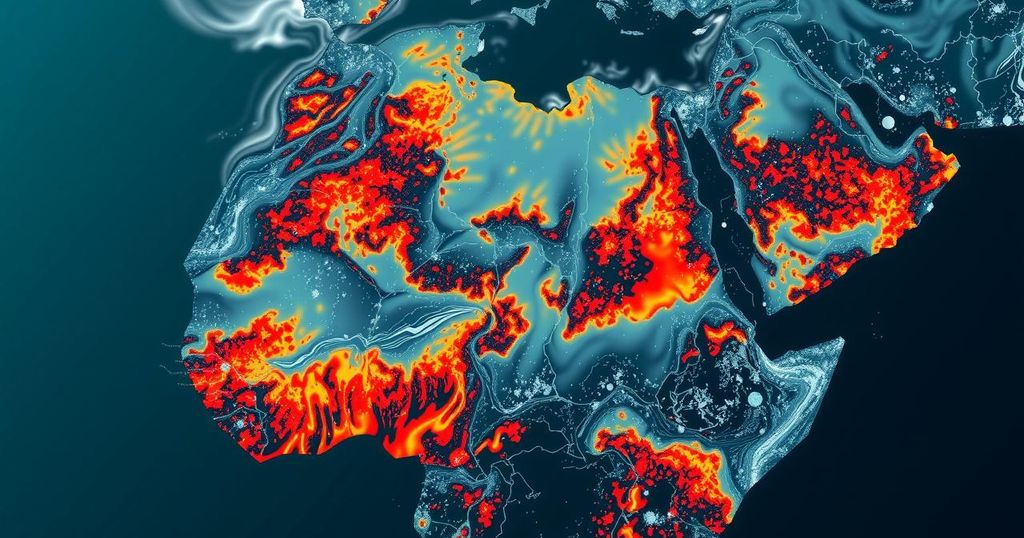Human-Caused Climate Change Intensifies Flooding in Africa, Reports Scientists
A recent report from the World Weather Attribution group links human-caused climate change to intensified rains that led to deadly floods in several African countries. The rains, worsened by global warming, resulted in the deaths of approximately 1,500 people and displaced over one million. Researchers warn of the potential for annual occurrences of such intense rainfall if temperature increases continue, emphasizing the urgent need for improved infrastructure and international financial support for affected nations.
A recent report from a team of international scientists has established a direct connection between human-induced climate change and the severe rainfall events that have resulted in devastating floods across several African nations, including Cameroon, Chad, Niger, Nigeria, and Sudan. According to the World Weather Attribution (WWA) group, these relentless downpours, experienced in recent months, were exacerbated by global warming, which intensified these seasonal rains by approximately 5 to 20% this year in the Niger and Lake Chad regions. This increasing trend poses a serious threat, as similar levels of intense rainfall could become commonplace annually if current warming trajectories persist. Izidine Pinto, a researcher at the Royal Netherlands Meteorological Institute, stated, “Spells of heavy summer rainfall have become the new normal in Sudan, Nigeria, Niger, Cameroon, and Chad.” The consequences have been tragic, with the United Nations Office for the Coordination of Humanitarian Affairs (OCHA) reporting that approximately 1,500 individuals have lost their lives and more than one million people have been displaced due to flooding in West and Central Africa. Additionally, the rainfall has exceeded the capacity of dams in both Nigeria and Sudan, triggering further emergencies. The WWA has projected that if global temperatures increase by 2 degrees Celsius (3.6 degrees Fahrenheit)—a milestone that could be reached as soon as the 2050s—intense downpours may occur nearly every year in the affected regions. This alarming forecast underscores the urgent need for nations to enhance their investment in early warning systems and upgrade infrastructure such as dams to better handle extreme weather events. Joyce Kimutai, a researcher at the Centre for Environmental Policy at Imperial College in London, remarked, “Africa has contributed a tiny amount of carbon emissions globally, but is being hit the hardest by extreme weather,” emphasizing the disproportionate impact of climate change on the continent. She urged that the forthcoming COP29 climate talks in November must focus on ensuring that wealthy nations contribute significant financial support to aid in climate adaptation efforts.
The topic of climate change has become increasingly relevant as its effects on weather patterns and natural disasters are observed globally. In Africa, climate change has manifested in devastating floods, particularly during the rainy season. The findings from the World Weather Attribution group demonstrate a clear link between rising global temperatures and intensified precipitation, with dire consequences for vulnerable populations in the region. Understanding these dynamics is crucial for formulating effective responses and investments in mitigation strategies.
In conclusion, the research indicates that climate change is significantly worsening rainfall events in Africa, leading to tragic consequences such as floods, loss of life, and displacement. The forecast of increased frequency and intensity of such events calls for urgent action, including investments in infrastructure and enhanced early warning systems. Moreover, it highlights the moral imperative on global leaders, particularly those in wealthier nations, to provide financial assistance to help affected regions cope with the escalating impacts of climate change.
Original Source: www.cnbcafrica.com




Post Comment